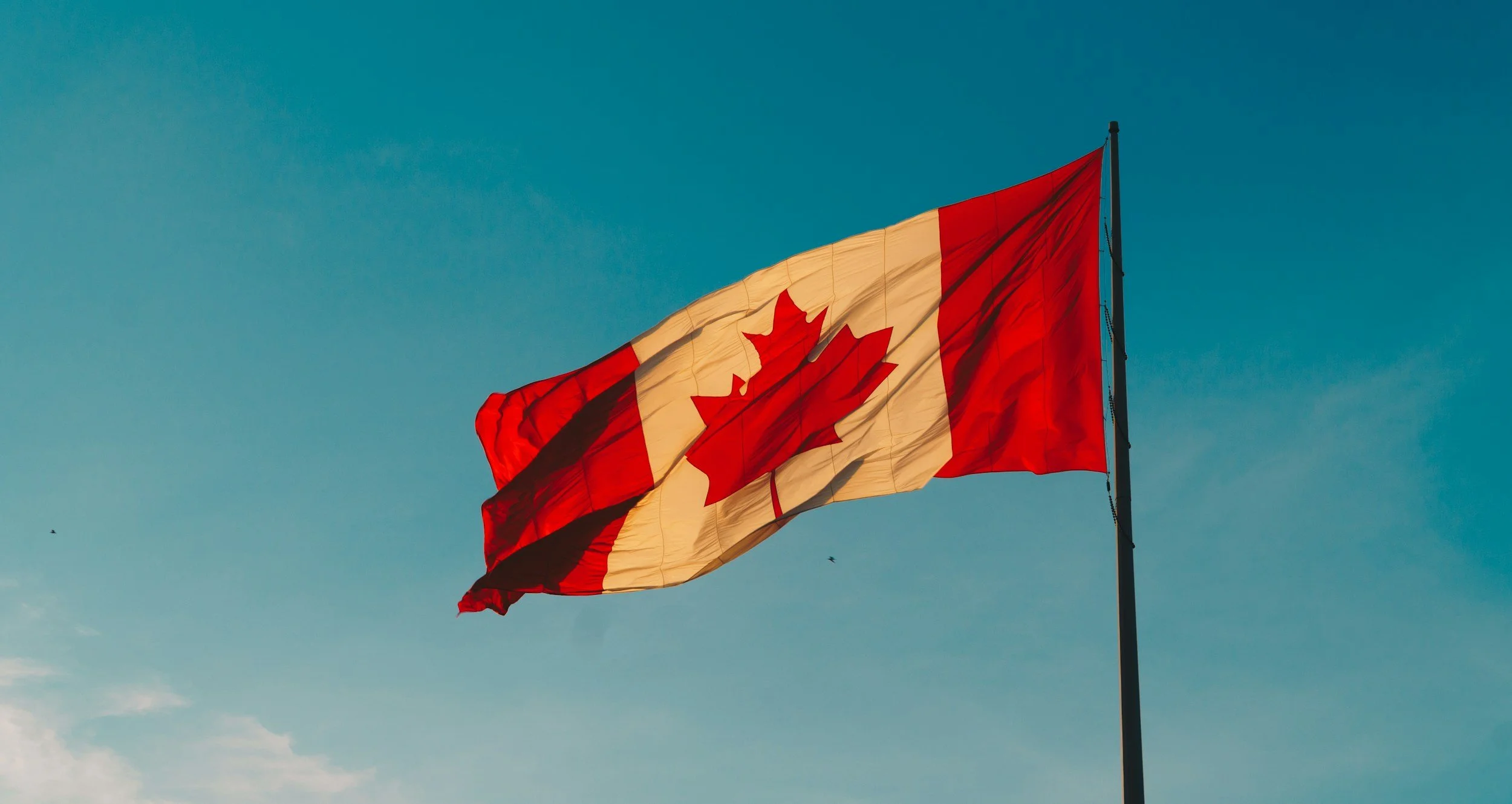
Are you thinking about seeking safe haven in Canada?
If you’re considering seeking refuge in Canada, read this page first, and contact the North Star Network for help.
Is Canada an option for you?
Migrants in the U.S. are facing increased threats.
Hundreds of people who came to the U.S. to build new lives are being criminalized, hunted down and arrested randomly in the streets.
Every one of these uprooted people faces a different situation and responds differently.
Those who are caught up in raids have no choice and are forced into detention. Others who are living in fear feel they have no choice and submit. Some go into hiding.
Some are considering going to Canada.
Canada is a country with a humanitarian history stretching back to the 1700s. It is a nation of immigrants. And it has a long tradition of accepting refugees and persecuted people.
Canada offers support to newcomers, including legal aid, shelter, help finding a job, medical services, and resettlement assistance.
Canada may be an option for you, but seeking asylum without a plan could put you at greater risk.
Many migrants currently in the United States are facing increased danger of arrest, detention, deportation, or family separation.
If you’re in the U.S. without legal status, with temporary protected status, or are otherwise vulnerable, you may be considering seeking refuge in Canada.
There may be a pathway to Canada for you, but Canadian border policies are complicated. Seeking asylum without a plan can put you at even greater risk.
No matter how strong you think your asylum request might be, if you just go to a border station and try to cross without preparation, you will put yourself at risk. You may be sent back to the U.S. side and detained by Immigration and Customs Enforcement (ICE) or Customs and Border Protection (CBP). You could be deported.
The North Star Network is here to help you figure out if Canada is an option for you.
The North Star Network is a Quaker humanitarian organization that supports uprooted people who are looking for alternatives.
Our network provides counseling, accompaniment and humanitarian aid to migrants and other people in need. We can provide advice before you act.
Get advice and support
-
Are you in the United States without a parent or guardian and are you younger than 18? Do you have a client or friend who is?
A child or young person who is under 18 and doesn't have a parent or guardian is called an "Unaccompanied Minor." Canada is sensitive to the needs of young people who are separated from their parents. The Canadian government has special provisions in place for Unaccompanied Minors. If you are interested in going to Canada and you are recognized as an Unaccompanied Minor, you can make a claim for asylum.
Remember: Children and youth traveling alone are at risk. No matter what, you should not start out on your own or try to get to the border with someone who promises to drive you for money.
If you are uprooted and would like to explore a pathway to Canada, you may qualify for protection as an Unaccompanied Minor. The North Star Network will help you understand your options and support you. Get in touch.
-
This can be dangerous. If the Canadian authorities won’t let you in, you’ll be returned to the U.S. side and could be picked up by ICE. Learn about your options before you try to cross the border. North Star Network can help.
-
Canadian border law is in flux. Canada accepts immigrants and refugees. If you want to seek refuge in Canada your claim has to be eligible under a Canada-U.S. treaty governing border crossings. The North Star Network can help you understand how Canadian border regulations apply to you.
-
When people try to enter Canada and ask for protection from persecution, the Canadians call it “making a refugee claim.” In the United States, it's called “seeking asylum.” They're essentially the same.
To make a refugee claim when you enter Canada at a border crossing, Canadian border officials must decide if your claim sounds legitimate. If they think your claim is eligible, they will refer it to Canada's Immigration and Refugee Board (IRB) for a decision. The IRB is a sort of tribunal. You will likely be admitted to Canada. You might have to wait many months for a final decision.
If Canadian border officials don't think your claim is eligible, you will be sent back across the border to the United States.
To make a refugee claim (or asylum claim), you must meet several conditions. One of these requirements is that your claim has to be eligible under a treaty governing border crossings by asylum-seekers that Canada and the United States have agreed to. The law is difficult to understand, but there are many exceptions to it, which may work to your benefit.
Get in touch with the North Star Network for advice about who is eligible to make an asylum claim in Canada and find out more about other options.
-
If you have already requested asylum in the United States, the United Kingdom, Australia, or New Zealand, and this is confirmed by the Canadian government, you will not be permitted to make a refugee claim in Canada.
Confirming whether this application has actually been made and is in the system can be difficult and is not always successful, so there could be an exception. In some cases it might be possible for you to request a so-called "Pre-Removal Risk Assessment," which is different but offers some protection. It may also be possible to enter Canada as an immigrant.
Get in touch with the North Star Network for advice about exceptions and to find out more about other options.
-
Are you a citizen of the United States or another country? Do you fear persecution? Have you already applied for asylum in the U.S.? It’s possible that you could make a claim for protection or enter Canada through another window, but it depends very much on the particulars of your situation. There’s no across-the-board answer.
North Star Network can help you understand and sort through the options.
-
People in the U.S. who are uprooted and have a close relative who lives in Canada may be able to enter the country and request protection. There are conditions.
The family member in Canada is called an "anchor relative." They do not not need to be a sponsor, provide housing or promise financial support. It has to be a blood relative and Canadian authorities must be able to verify the relationship.
Canadian law only recognizes certain family members as anchor relatives. You may feel sure, but do not try to enter Canada if you have relatives there without first understanding how the law works and knowing what to expect. If your claim is rejected at the point of entry, you could be sent back across the border and could be detained by Customs and Border Patrol or ICE.
The details are complicated but the North Star Network can help you understand how the law applies to your situation. Get in touch with us.
-
You are "stateless" if no state or country accepts you as a citizen, regardless where you were born. You may be stateless without knowing it. If you are from Bhutan, if you are of Haitian descent but born in the Dominican Republic, if you are from Palestine or from parts of the former Soviet Union, Canada may consider you stateless.
Stateless migrants crossing from the U.S. fall under special provisions when they enter Canada. They have to demonstrate that they are not nationals of any country and Canadian border officials have to believe them. Don't go to the border without knowing how to make your claim or without documentation to back it up. If your claim is rejected, you will be sent back across the border and could be arrested on the U.S. side. The North Star Network will provide you with legal information and help you understand if you have a viable claim. Get in touch with us.
-
Several services are available to newcomers. The North Star Network partners with groups in Canada that can help. They offer shelter, advice as you pursue claim, support getting a work permit, help signing up for medical care and other services.
If you go to Canada and need help, the North Star Network can put you in touch with partner groups there. Get in touch.
Support and advice from the North Star Network are free and confidential.



